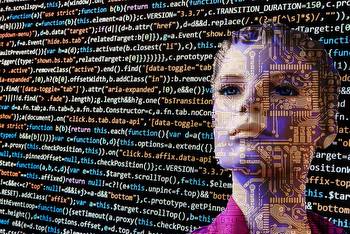What can SEBI learn from casinos?

In the past few years, the Securities and Exchange Board of India (SEBI) has aggressively invested in upgrading its technology to boost its market surveillance, investigations, and policymaking capability.
Recently, the regulatory body showed interest in a system that helps Las Vegas casinos in keeping away tricky gamblers.
Casino AI technology comes with superior risk management systems compared to traditional data analytics that regulators are currently using. That is because the margin of error for these AIs is very thin; failing to detect a single rogue gambler can cost casinos millions of dollars. The market regulators mostly relied on tips to investigate criminal activities until recently. However, they have been found wanting to build water-tight cases against insider-trading violations.
SEBI plans to implement various analytical models based on artificial intelligence, machine learning, and rule-based algorithms. It aims to implement analytics based on unstructured data on its Data Lake platform. A few months back, the US-based provider gave a live demo to SEBI and will customise the software per SEBI requirements if the deal goes through.
In its annual 2020-21 report, SEBI said it would implement major IT projects critical to its daily operations and mandate. If the casino AI platform is implemented, high-risk scanning traders for SEBI will be convenient. In casinos, high-risk clients are the ones who are over-leveraged or have a trend of placing erratic bets.
The latest development comes after SEBI, last year, had shortlisted five companies for implementing data analytics projects to tackle possible market manipulations like insider trading and front running. The five companies were Tata Consultancy Services (TCS), Wipro, Capgemini Technology Services India, Larsen & Toubro Infotech and NEC Corporation India.
AI in markets around the world
In 2018, NEC Corporation provided Japan Exchange Regulation (JPX-R), an independent self-regulatory body, with artificial intelligence (AI). The JPX-R maintains integrity in the Japanese securities markets. The AI assists with market surveillance operations and detecting misconduct, such as market manipulation, in the Tokyo Stock Exchange.
JPX-R has adopted NEC Advanced Analytics – RAPID machine learning software, part of NEC’s portfolio of state-of-the-art AI technologies, NEC the WISE, to carry out market surveillance operations using AI. The software is now being used to acquire a wealth of knowledge previously used in operations by surveillance personnel to evaluate irregularities in trade activity.
In 2019, then-Bank of England Gov. Mark Carney argued that financial regulators would have to adopt AI techniques to keep up with the rising volumes of data flowing into their systems. To dramatise the point, he said the bank receives 65 billion pieces of data annually from companies it oversees and that reviewing it all would be like each supervisor completely reading Shakespeare’s work twice a week for the whole year.
A prime example of an ETF fueled by AI is the AI-powered equity exchange-traded fund AIEQ. According to Sam Masucci, founder and CEO of ETF Managers Group, powered by IBM’s artificial intelligence Watson, this actively managed portfolio is the first of its kind which operates the fund. As a result, the AI-powered equity ETF, or AIEQ, consistently outperforms the S&P 500.
AI in casino
Mindway AI, a company from Aarhus University, predicts gambling problems. Built by Kim Mouridsen, the company uses psychologists to train AI algorithms to identify behaviours associated with the problem of gambling.
Mindway’s AI system analyses 14 different risks, including money and time, but also cancelled withdrawals from the bank, shifts in the time of day the player is playing, and changes of wagers. Each factor is scored from 1 to 100; the AI then maps out a risk analysis of every player, improvising with each game. Based on the assessment, players are scored from green to red.
The Las Vegas gaming industry initiated the usage of AI and how it integrates itself and its various functions. Players can be personified in real-time by integrating AI into player tracking systems. Data is a major factor in enhancing the experience overall. From learning what players like, the amount of time spent by them, to the most liked game mechanics, the use of AI/ML is helpful. Moreover, it accurately identifies signals such as cheating, addiction and behaviour issues.
But when developers aggregate in-game and combine it with other social data, the privacy implications are heightened.
AI can help casino management identify valuable customers and determine the most popular games based on time and money. In addition, AI-enabled analytics can extract the demographics of the players. This can help to build marketing strategies.
One of the companies, Dragon Fruit, has done remarkable work in this field. With the data collected by AI, casinos can tailor loyalty programs and bonuses to the needs and preferences of the industry. ML is not biassed like humans; hence bots can be designed to deliver bespoke customer experiences.
Both offline and online casinos want to implement proactive and reactive AIs. There is definite interest in using AI technology for Las Vegas casinos to help them improve their floor plans. AI can help casinos make fundamental decisions about what games they play and how to make the most of the flow of human traffic on their floors.
Consider neural networks, a common form of machine learning used to translate languages and drive cars. These networks mimic the brain’s structure, learn from training data, and alter the strength of connections between artificial neurons. Small subcircuits of neurons perform certain tasks, such as recognising traffic signs, and researchers spend months linking them to work together.
Ethical implications
Using AI to gamble is not simple. It requires skills for data analysis and choosing useful data from the websites. Moreover, it requires servers set up, dashboards and working with a humongous set of data.
Akkio comes into the picture here. It is a no-code platform, making AI available to non-coders. Akkio co-founder Jon Reilly said horse race betting is a prime example of how a no-code platform like Akkio can turn around an ML model and predict outputs within 10 minutes. Akkio’s goal was to run that data through Akkio to predict each horse’s implied probability and finishing position.
Harmful gambling behaviour prediction
AI helps remote gambling operators identify patterns of harmful gambling behaviour. AI models are fast and scalable, allowing the entire customer base to be tracked in real-time to ensure signals are picked up early. As a result, the Customer Interaction team, which would be unable to assess the entire customer base manually, can focus on the highest risk customers and intervene appropriately. For example, they can schedule a phone call, restrict bet amounts, or freeze an account entirely.
DataRobot Automated Feature Discovery can be leveraged to aggregate thousands of customer events/transactions and find patterns that suggest a customer is at risk. DataRobot Anomaly Detection can also identify new patterns of unusual behaviour.
Predict player’s lifetime value
Projecting the LTV of an individual customer will allow client service leaders to prioritise individual customers.
AI enables synthesising historical player data, known attributes of those players, and any other industry or game-specific information an organisation finds valuable to identify patterns associated with additional value and risk. After creating a dataset, one can use those attributes against past player LTV/revenue outcomes using machine learning to identify behavioural patterns of different players, seasonal effects, the impact of different promotional offers, etc.
Challenge(s) faced while implementing AI
The World Economic Forum (WEF) has warned that new technologies such as the Internet of Things, artificial intelligence, and quantum computing could turn people’s lives upside down and make society more vulnerable to cyber-attacks.
The risks of data breaches and hacking could hinder the growth of the AI market; the regulatory challenges posed by games lie at the interface of technology, law, and politics.
Hyper monetisation, due to its increasing complexity, could undermine consumer confidence and raise questions for the gambling industry regarding data protection and regulation.
Desi use cases
Online gaming platforms like MPL, Dream11 and others have been using AI/ML to enhance customer experience, curb frauds, etc.
Mobile Premier League (MPL) extensively uses AI, ML and analytics to stay ahead of the game. It is one of the fastest-growing eSports platforms in India today. Launched in September 2018, the platform has garnered over 25 million users in a short period. Meanwhile, Dream 11 uses an AI-based bot to deliver top-notch customer support. Created by Haptik, the Dream 11 customer support bot is a conversational AI that handles the massive scale of incoming requests by delivering instant responses without making anxious users wait.



































